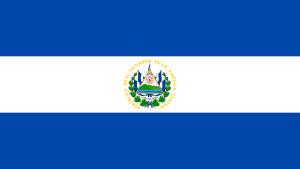2016 Città di Caltanissetta – Doubles
Daniele Bracciali and Potito Starace were the defending champions, but could not defend their title due to being banned from tennis for betting offences.
| Doubles | |
|---|---|
| 2016 Città di Caltanissetta | |
| Champions | |
| Runners-up | |
| Final score | 6–1, 6–2 |
Guido Andreozzi and Andrés Molteni won the title after defeating Marcelo Arévalo and Miguel Ángel Reyes-Varela 6–1, 6–2 in the final.
Seeds








Draw
Key
- Q = Qualifier
- WC = Wild Card
- LL = Lucky Loser
- Alt = Alternate
- SE = Special Exempt
- PR = Protected Ranking
- ITF = ITF entry
- JE = Junior Exempt
- w/o = Walkover
- r = Retired
- d = Defaulted
| First Round | Quarterfinals | Semifinals | Final | ||||||||||||||||||||||||
| 1 | 2 | 6 | [10] | ||||||||||||||||||||||||
| WC | 6 | 4 | [7] | 1 | 63 | 65 | |||||||||||||||||||||
| 77 | 7 | 77 | 77 | ||||||||||||||||||||||||
| 61 | 5 | 6 | 2 | [8] | |||||||||||||||||||||||
| 4 | 7 | 6 | 4 | 4 | 6 | [10] | |||||||||||||||||||||
| WC | 5 | 4 | 4 | 6 | 6 | ||||||||||||||||||||||
| 77 | 6 | 1 | 2 | ||||||||||||||||||||||||
| WC | 65 | 1 | 4 | 6 | 6 | ||||||||||||||||||||||
| 66 | 0 | 3 | 1 | 2 | |||||||||||||||||||||||
| 78 | 6 | 2 | 2 | ||||||||||||||||||||||||
| 4 | 66 | 3 | 6 | 6 | |||||||||||||||||||||||
| 3 | 6 | 78 | 3 | 68 | 6 | [10] | |||||||||||||||||||||
| 6 | 710 | 2 | 710 | 3 | [6] | ||||||||||||||||||||||
| 3 | 68 | 5 | 5 | ||||||||||||||||||||||||
| 0 | 7 | [9] | 2 | 7 | 7 | ||||||||||||||||||||||
| 2 | 6 | 5 | [11] | ||||||||||||||||||||||||
gollark: You use C for those mostly.
gollark: It would probably have a microcontroller in it, and those typically run C.
gollark: There's probably some way to rewrite them as a bunch of equations, say, then solve those - you know the amount of X atom/ion on the left is equal to the amount on the right, and you know the amount on the left is equal to (moles of reactant A * 3 + moles of reactant B * 2) and so on.
gollark: I think what humans do is randomly guess a bit, tweak the numbers so they match better, then infer the rest when they reach something consistent.
gollark: Oh, hmm, I'm not really sure how you would do that. Did you try looking it up on the interwebs?
References
This article is issued from Wikipedia. The text is licensed under Creative Commons - Attribution - Sharealike. Additional terms may apply for the media files.